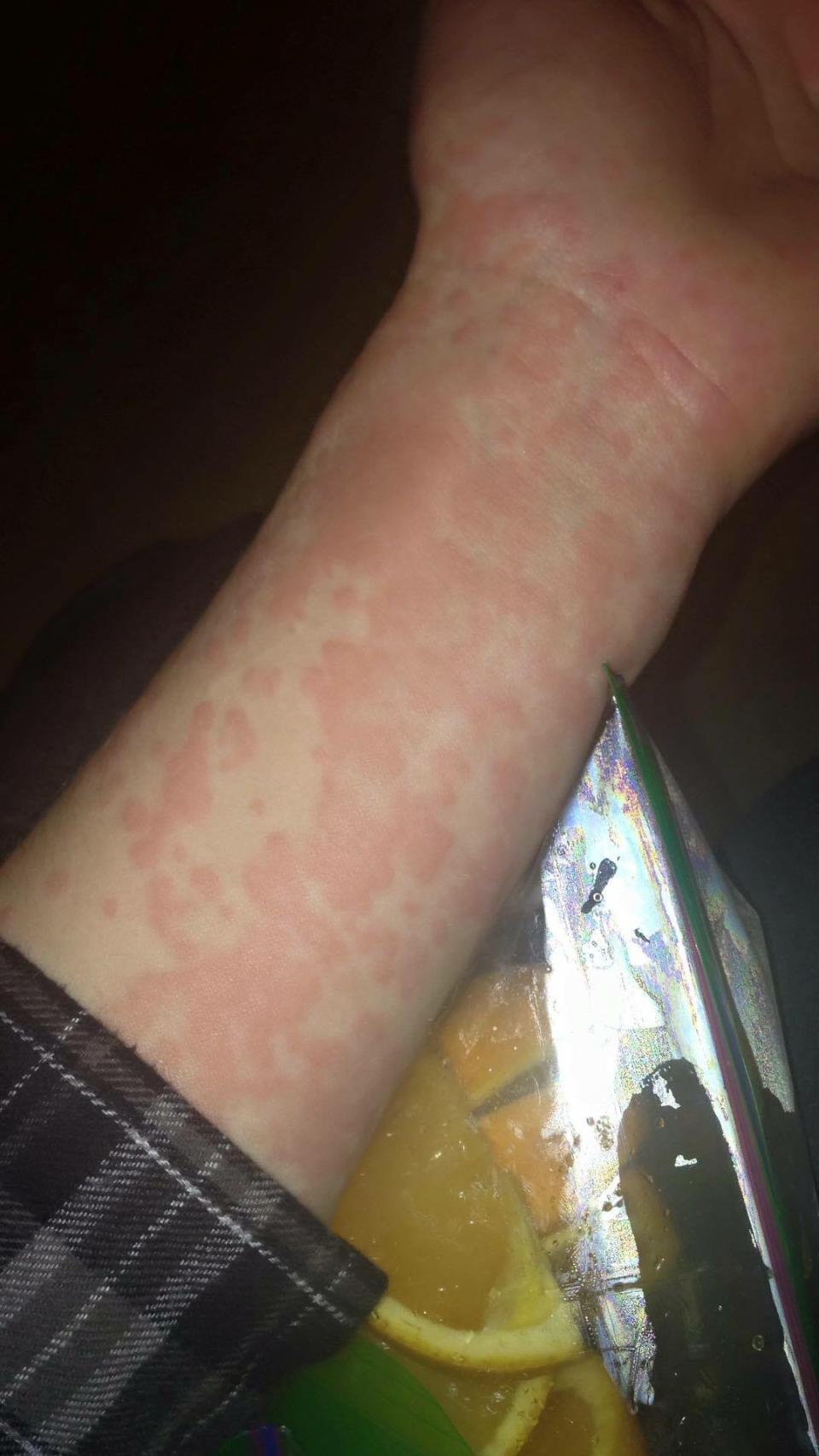Woman with rare disorder 'allergic to winter'

Words by Elizabeth Di Filippo.
A Canadian woman is making headlines for an incredibly rare auto-immune disorder that makes her “allergic to winter.”
Arianna Kent was 14 when she first broke out into hives and experienced trouble breathing while shovelling snow in her hometown of Edmonton, Alta., where temperatures can drop as low as -40 C.
Initially, she dismissed the reaction as a food allergy, but years of research finally lead to the answers she was looking for: Essential cold urticaria.
A rare autoimmune disease, essential cold urticaria is a chronic reactive skin disorder that occurs when exposed to cooler temperatures. For Kent, normal everyday activities such as holding onto a cold can of pop or walking to her car on a cold day causes the now 21-year-old to break out into painful hives.

“It is a slow process, starting as small pin-sized hives on my arm that get bigger and begin to become raised,” she explains. “At their largest my whole body can look like a whole swollen welt. It causes my skin to burn and itch, for my throat it’s like asthma where you are wheezing harder and find it difficult to breathe… It’s like something is sitting on your chest making it feel tighter and heavier.”
Kent’s reactions can be so severe, she was once hospitalized three times in one month. “I can go into full blown anaphylactic shock, so I have to carry an EpiPen,” she reveals. “It’s terrifying knowing that if I’m in an area without access to medical help and my throat closes up I could be at serious risk.”
Although some people who suffer from cold urticaria are able to treat their reactions with antihistamines, Kent tellsYahoo Canada that taking any allergy medication worsens her symptoms. For the most part, limiting her histamine intake in the food she eats, wearing layers and keeping a heater in her office helps minimize her risk of an outbreak.
“It’s such a strange and rare allergy, the most common thing is that people think it’s a joke,” she says. “People often don’t believe me or know it’s a real allergy. They say, ‘Yes Arianna, we know you’re always cold but that doesn’t mean you’re allergic to it.'”
A support group online has helped connect Kent with other people who are living with the rare condition, where people share tips about what has helped them reduce the number of allergic reactions.

In winter or summer, Kent says her allergy is a factor in everything she does. Whether she lived in Edmonton or a warmer climate, her allergy would still affect her.
“Even in 30°C weather a cool breeze can set me off or jumping into a pool,” Kent says. “Air conditioning is terrible and not my friend either. Even holding a cold drink if I want ice in it I will feel my fingers are swollen after.I can feel it in my throat if I’m drinking something cold. It feels tight and tense. It’s the same if I eat ice cream. I can avoid a cold pool or drink, but you never know when it will start raining or get cold outside. That’s not in my control.”
Follow us on Instagram and Facebook for non-stop inspiration delivered fresh to your feed, every day. For Twitter updates, follow @YahooStyleUK.
Read more from Yahoo Style UK:
Women’s head swells to incredible size after allergic reaction to hair dye
Celery, mustard and sulphur dioxide: The surprising foods on the 14 top allergens list


